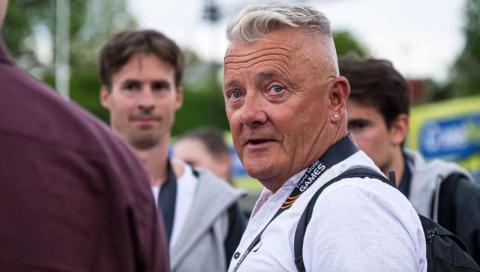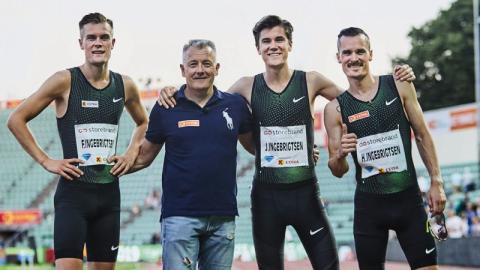
The Norwegian athletics world has been rocked by a high-profile court case as Jakob Ingebrigtsen, one of the nation’s most celebrated middle-distance runners, testified against his father, Gjert Ingebrigtsen, in an abuse trial that has exposed deep fractures within the legendary running family. The trial, which has drawn widespread attention, is centered around allegations of physical and emotional abuse, challenging the image of the family that became synonymous with success in Norwegian athletics.
Jakob Ingebrigtsen, the Olympic 1500m champion, along with his brothers Henrik and Filip—both accomplished runners in their own right—have publicly accused their father of violent and controlling behavior throughout their upbringing and professional careers. The revelations came to light in late 2023 when the brothers released a statement detailing years of mistreatment that, they claim, shaped both their personal lives and their sporting careers.
Gjert Ingebrigtsen, the architect behind his sons’ rise to international prominence, has denied the allegations, asserting that his coaching methods, though strict, never crossed the line into abuse. The case has divided public opinion in Norway, with some defending Gjert’s tough-love approach while others stand in support of the athletes who have come forward.

In court, Jakob Ingebrigtsen provided a powerful testimony, recalling instances of what he described as excessive control, verbal degradation, and physical intimidation. He detailed the emotional toll of growing up under what he called a "dictatorial" coaching environment, where failure was met with harsh consequences.
“The success we achieved came at a great personal cost,” Jakob stated. “For years, we were taught that pain and discipline were the only way to greatness, but the emotional scars remain long after the races are over.”
His testimony was backed by similar accounts from Henrik and Filip, who each emphasized the fear and pressure they experienced under their father’s guidance.
The Ingebrigtsen family’s struggles have not only damaged personal relationships but have also raised questions about the culture of elite sports in Norway. Experts have weighed in on the case, discussing the fine line between demanding coaching and outright abuse. Some have called for reforms in coaching practices and athlete welfare, particularly when family dynamics are involved.
Norwegian athletics officials have remained largely neutral but acknowledged the impact of the case. The Norwegian Athletics Federation has reiterated its commitment to athlete safety and well-being, stressing the importance of a healthy training environment.

Gjert Ingebrigtsen, who has maintained a relatively low profile since the accusations surfaced, insists that his methods were tough but necessary for building champions. His legal team has argued that the claims against him are exaggerated and that the family’s internal conflicts have been unfairly magnified in the public eye.
In a previous statement, Gjert expressed his sadness over the family rift but denied any wrongdoing. “I have only ever wanted the best for my children,” he stated. “I may have been strict, but I never abused them.”
The trial is expected to conclude in the coming weeks, with potential legal consequences for Gjert Ingebrigtsen if the court rules against him. Regardless of the outcome, the case has left an undeniable mark on the Ingebrigtsen legacy, transforming what was once seen as a model family of discipline and excellence into a cautionary tale about the dangers of unchecked power in sports coaching.
For Jakob, Henrik, and Filip, the trial represents an attempt to reclaim their narrative and separate their accomplishments from the shadows of their upbringing. Regardless of the verdict, the emotional and psychological impact of their past remains a part of their journey—a reality that extends beyond the track and into the very fabric of their lives.
Discover More Content





